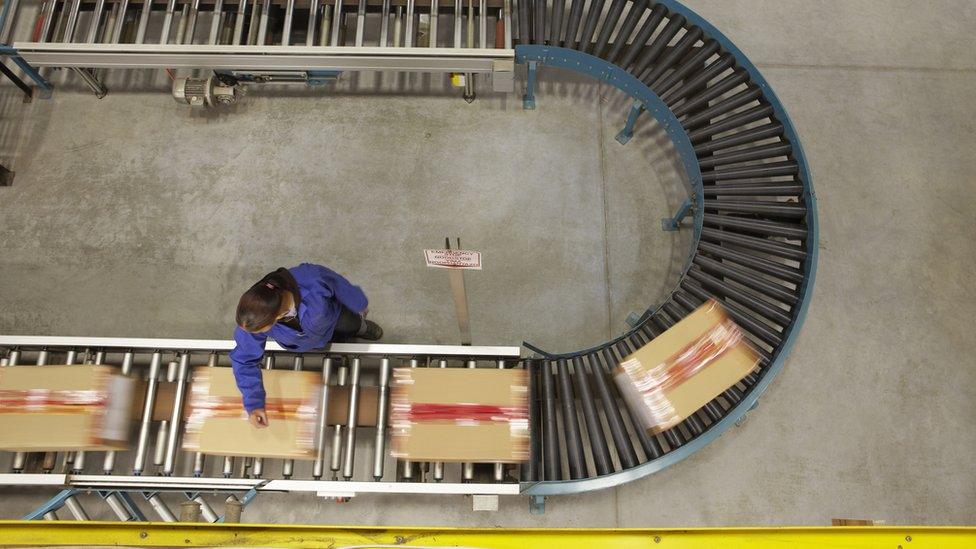Covid-19: No increase in NI unemployment after furlough
- Published

Official data suggests the end of furlough did not lead to an increase in unemployment in Northern Ireland.
There were still more than 26,000 people being paid through the scheme when it came to an end in September.
Furloughed workers were still on company payrolls so if the furlough had ended badly payroll numbers would have been expected to fall.
However the number of workers on payrolls increased in October.
The Northern Ireland Statistics and Research Agency (Nisra) said the number of payrolled workers in October was 768,200, an increase of 0.5% over the month and 4.4% over the year.
"This is the highest on record and the fifth consecutive month that employee numbers have been above pre-Covid levels," said the agency.
That does not mean that nobody lost their job at the end of the furlough but that the economy created more jobs than were lost.
Other data also points to a soft landing for the furlough scheme.
The rolling 12-month total of proposed redundancies is at its lowest since summer 2019 and claimant count unemployment also decreased for the eight consecutive month.
However other labour market measures suggest the damage from the coronavirus pandemic has not yet been fully reversed.
Labour Force Survey data for the period from July to September this year shows the total number of hours worked was still 7.8% below pre-pandemic levels.
Self employment has been much slower to recover than employee jobs and the employment rate, which covers both types of work, was still 2.2 percentage points below pre-pandemic levels.